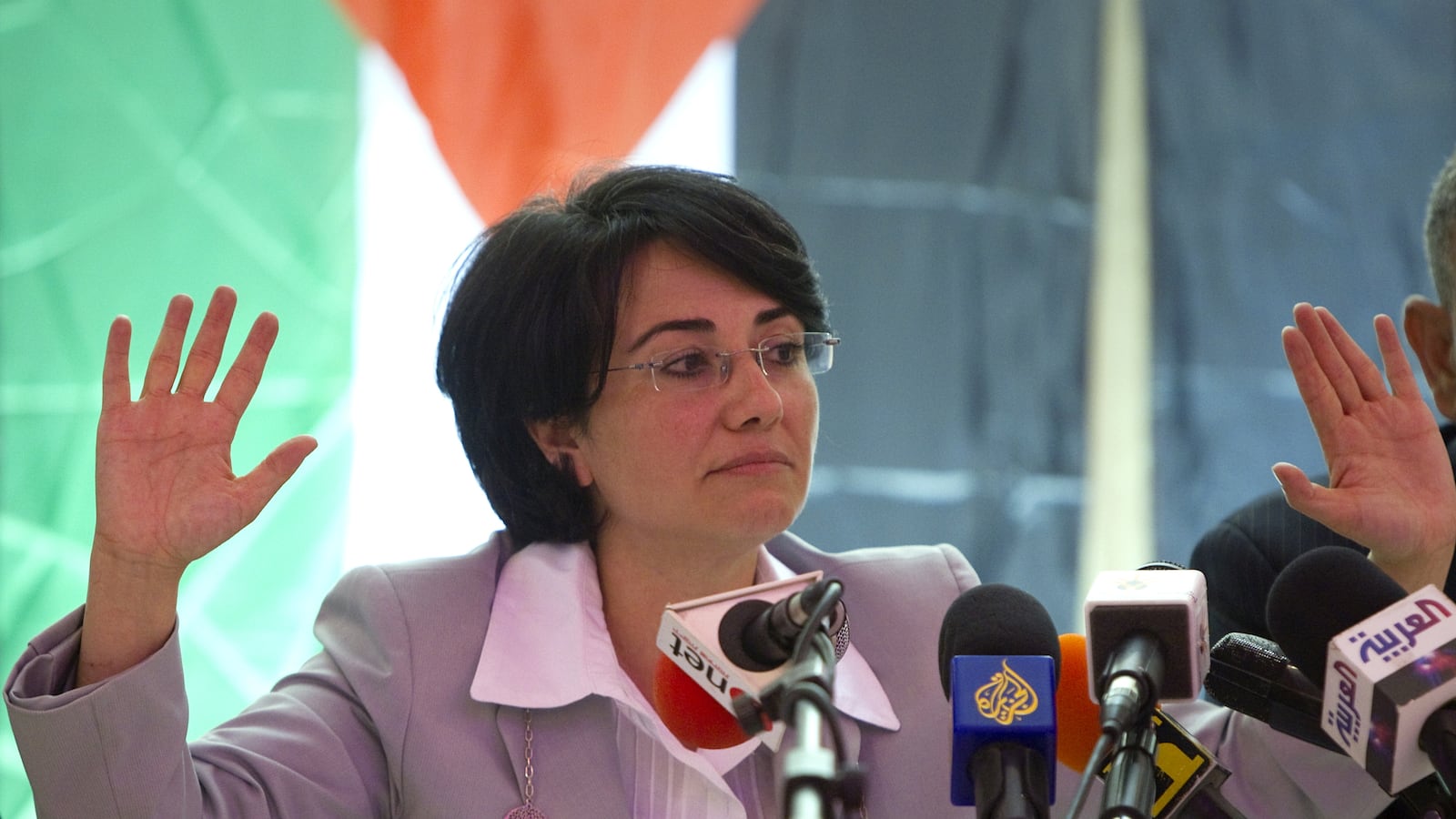When the head of Israel’s Shin Bet security service, Yoram Cohen, described Israel’s Arab minority as “a Palestinian public that identifies with their brethren in Judea and Samaria,” Prime Minister Netanyahu obviously wasn’t paying attention. If he had been, perhaps he would not have insisted on amending the Tal Law to not only require the conscription of ultra-Orthodox Jews but also Israel’s Arabs.
After all, can Palestinian citizens of Israel really be expected, let alone compelled, to join the Israeli Defense Forces where they might wind up policing their brothers in the West Bank or shooting at them in Gaza? Is it sensible or ethical to force Palestinian citizens of Israel into such a position? Instead of facilitating their integration into Israeli society, the demand that Arabs enlist in the IDF will only exacerbate the tension they experience between their Palestinian national identity and their Israeli citizenship and sharpen their sense of grievance.

As soon as one recognizes the fact that most Israeli Arabs are, in fact, Palestinian, the demand that they perform compulsory military service clearly becomes untenable. After decades of avoidance and denial, it is surely time that all Israelis finally acknowledge the Palestinian national identity of the country’s 1.3 million Arab citizens (about 20 percent of the population).
Israeli Jews continue to use the label “Israeli Arabs,” a label that was imposed upon the Arab minority by the Israeli state and one that most Arabs in Israel no longer use to describe themselves (in a 2009 survey 60 per cent of Arab citizens rejected the label and identified themselves as Palestinian). The term “Israeli Arab” is at best anachronistic, perhaps appropriate for a time decades ago when Arabs in Israel didn’t identify as Palestinians (at least not openly). At worst, the term is demeaning and disrespectful, denoting Arabs in Israel as merely a cultural and ethno-linguistic minority, rather than the national minority that they really are.
It is much more than just semantics that is at issue in using the label “Israeli-Arabs” rather than, for instance, the label “Palestinian citizens of Israel”—the term that is now most widely used by the Arab minority itself. By failing to recognize the ‘Palestinian-ness’ of Arabs in Israel one is bound to misunderstand the nature of their struggle in Israel today, not adequately respond to it, and even make it worse.
Arab citizens of Israel increasingly see their own struggle as part and parcel of the larger Palestinian national struggle. To be sure, they have their own needs and demands inside Israel and few wish to live in a Palestinian state if one is eventually established, but most members of the Arab minority in Israel see themselves as an integral part of the wider Palestinian nation. In addition to their longstanding demands for full equality as Israeli citizens, therefore, the political leadership and intellectual elite of the Arab community in Israel now also want Israel to officially recognize the Arab minority as an indigenous Palestinian national minority and grant them some collective rights, especially in the areas of education and culture. In other words, they want recognition and rights as a group—as Palestinians—not merely as individual citizens.
This poses a major challenge to Israel, but not an insurmountable one. Recognizing the Palestinian national minority and their collective rights in Israel does not necessarily entail the abolition of the Jewish state, as many Israeli Jews fear. It does, however, require much more than just ending anti-Arab discrimination and improving the socio-economic status of Arabs in Israel—the current focus of well-meaning, liberal Zionist efforts. It would mean, for example, giving the Palestinian minority control over its own educational system, giving them the freedom to choose their own school curriculum, just as the ultra-Orthodox in Israel already do.
Needless to say, this is something that most Israeli Jews would balk at. Already distrustful of the loyalty of the Arab minority in Israel, the idea of giving them greater freedom and rights is bound to be seen by much of the country’s Jewish majority as far too risky—a slippery slope which may eventually lead to Arab demands for secession. While this concern is certainly understandable, continuing to deny the collective identity and rights of Palestinians in Israel carries with it a greater danger. The longer the Palestinian issue inside Israel is ignored, denied, or downplayed, the greater the risk of an explosion of anger and unrest by Palestinians citizens of Israel. To avoid this dangerous outcome and counter the radicalization of Palestinians in Israel, major reforms are urgently needed.
Whether or not the full demands of the Palestinian minority are attainable inside a Jewish state, Israel must at the very least be willing to acknowledge their collective identity as Palestinian citizens of Israel. Denying their national identity will not make it disappear. Forcing them to perform military service against their wishes and in total disregard for their national identity is dangerously misguided and deeply irresponsible. It is courting trouble.






